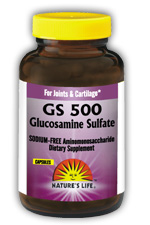Vitamins and omega-3s linked to better brains
Nutrients combine to make unique “signature patterns” or profiles in the blood, and researchers in this study tested which profiles were linked to better cognitive health. Doctors measured nutrients in 104 adults without dementia, aged 77 to 97, and found that, compared to those with lower levels, those with the highest blood levels of folate, vitamins B1, B2, B6, B12, C, D, and E, and omega-3 fatty acids, scored highest on mental tests and had healthier MRI brain scans.
The brain can shrink with age, rising chances for dementia and Alzheimer’s disease. Those in the study with the highest levels of trans-fats-partially hydrogenated oils common in highly processed and deep fried foods-scored lowest on mental tests and had signs of brain shrinkage. Doctors said we already knew trans-fats raise bad cholesterol and lower good cholesterol levels and are bad for the heart, but this is the first study to link trans-fats and brain health. “It is very exciting to think that people could potentially stop their brains from shrinking and keep them sharp by adjusting their diet,” researchers concluded.
Leucine helps maintain muscle mass
The body needs proteins to maintain muscle mass, and its ability to make and use proteins declines with age. In this study, eight people, everage age 68, took 4 grams of the branched-chain amino acid leucine with each of three meals per day. Researchers compared muscle biopsies and blood samples before the study and after 14 days and found significantly higher rates of protein formation and increased signs of cellular muscle-building activity. Doctors said the low dose of leucine may make it easier to maintain muscle mass with age.
Reference: Neurology; 2012, Vol. 78, No. 4, 241-9
From the July 2012 newsletter

 a 10-year tracking period.
a 10-year tracking period.